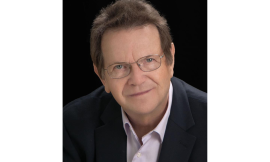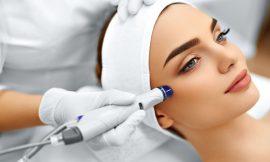The autologous cell therapy market has surged in prominence, standing at a value of USD 7.8 billion in 2023. With projections indicating a robust growth rate of 19.4% CAGR, the market could hit USD 38.4 billion by 2032. This blog examines the key drivers, trends, technological advancements, competitive landscape, and future projections in autologous cell therapy, making it a pivotal resource for industry stakeholders.
1. Understanding Autologous Cell Therapy
- What is Autologous Cell Therapy?
Autologous cell therapy uses a patient’s own cells to treat diseases, significantly lowering immune rejection risks. The extracted cells undergo a process that may include expansion, modification, and reinfusion into the patient to treat conditions like cancer, autoimmune diseases, and neurological disorders. - Types of Autologous Cell Therapy:
Autologous therapy is versatile, with several subtypes:- Stem Cell Therapy: Uses stem cells to regenerate damaged tissues, particularly in orthopedics and neurology.
- CAR-T Cell Therapy: Utilizes a patient’s T-cells modified to target cancer cells; widely adopted in oncology.
- Skin and Tissue Regeneration: For treating severe burns or reconstructive surgeries, often with epithelial cells.
- Advantages of Autologous Cell Therapy Over Other Types:
Autologous cell therapies offer better compatibility and reduced complications than allogeneic (donor-derived) or xenogeneic (animal-derived) options, making them increasingly favored in precision medicine.
2. Market Growth and Projections
- Current Market Size and Projections (2024-2032):
- 2023: Valued at USD 7.8 billion.
- 2024: Expected to grow to USD 9.3 billion.
- 2032: Projected to reach USD 38.4 billion.
- Driving Factors:
- Increasing incidence of chronic diseases such as cancer, diabetes, and cardiovascular disorders.
- Rising emphasis on precision medicine that caters to patient-specific needs.
- Advances in cell manipulation and genetic engineering technologies.
- Regional Analysis:
- North America: Dominates due to established healthcare infrastructure and research funding.
- Europe: Growing rapidly with government support for regenerative medicine.
- Asia-Pacific: Emerging markets like India and Japan are witnessing high investment in cell therapies, supported by a large patient population.
3. Key Market Trends
i. Emphasis on Precision Medicine
- Autologous therapies are at the forefront of precision medicine due to their compatibility and personalized approach.
- These therapies cater to a broad spectrum of chronic conditions, providing targeted solutions with minimal side effects, thus boosting patient outcomes.
ii. Technological Innovations in Cell Therapy
- Gene-Editing Advances: Tools like CRISPR have enabled precise modifications to cells, increasing the effectiveness of autologous therapies.
- Bioprinting and 3D Culture Techniques: Emerging technologies that allow for scalable cell expansion and tissue engineering, potentially reducing costs and production times.
- Cryopreservation Innovations: New preservation techniques are expanding the reach of autologous cell therapies by enabling long-term storage and transport without compromising cell viability.
iii. Increased Partnerships and Strategic Collaborations
- Companies are forming alliances to expedite clinical trials, enhance research, and pool resources. This trend boosts the market by allowing shared knowledge and quicker regulatory approvals.
iv. Rise of Emerging Markets
- In regions such as Asia-Pacific and Latin America, governments and private sectors are investing in cell therapy research and infrastructure, tapping into untapped patient pools and reducing therapy costs.
4. Competitive Landscape and Key Players
- Leading Companies in Autologous Cell Therapy:
- Sanpower Group (Dendreon Pharmaceuticals LLC): Known for pioneering immune cell therapy in cancer.
- Novartis AG: Major player in CAR-T therapies, especially with products like Kymriah for leukemia.
- Gilead Sciences: Significant investments in autologous therapies for oncology, targeting solid and blood-based cancers.
- Johnson & Johnson (Janssen Biotech, Inc): Developing solutions in immunotherapy and chronic disease management.
- Bristol Myers Squibb: With a focus on oncology, it holds a significant share in cell-based cancer treatments.
- Partnership Strategies:
Leading players are entering collaborations with biotech startups, research institutions, and other pharmaceutical giants to share resources, accelerate R&D, and expand their market reach. - Product Offerings and Therapeutic Focus Areas:
The focus remains primarily on oncology, cardiovascular diseases, and regenerative medicine, where precision treatments can yield the most significant patient benefits.
5. Technological and Regulatory Landscape
- Patent and Innovation Landscape:
- Several major players hold patents on CAR-T and stem cell therapies, which protect innovations in cancer and chronic disease treatments.
- Innovations like gene-editing and cryopreservation have spurred new patents, underscoring the importance of R&D in this market.
- Clinical Trials and Regulatory Compliance:
- Numerous clinical trials are underway, evaluating the effectiveness of autologous therapies for conditions ranging from oncology to neurodegenerative diseases.
- Regulatory compliance is stringent, with the FDA, EMA, and other bodies setting rigorous standards to ensure patient safety.
- Ethical and Logistical Challenges:
- Ethical concerns arise in gene modification, as do challenges in logistics due to the need for specialized equipment and handling in autologous therapy delivery.
6. Investment and Funding Trends
- Funding Boom:
Venture capital and private equity are pouring into autologous cell therapy research, backing startups and established players. - Government Grants and Subsidies:
Governments in North America and Europe are providing grants to support innovations in regenerative medicine, aiming to cut long-term healthcare costs by tackling chronic diseases effectively. - Impact on Innovation:
Increased funding allows for enhanced R&D, more clinical trials, and faster commercialization, directly contributing to the rapid growth and market expansion.
7. Market Segmentation and Target Applications
- By Application:
- Oncology: CAR-T cell therapies have revolutionized cancer treatment, leading to increased adoption in this segment.
- Cardiovascular and Orthopedics: Use of stem cells to repair tissue and enhance recovery.
- Neurology: Emerging applications in treating degenerative diseases like ALS and MS.
- By End-User:
- Hospitals and specialized clinics are major users, followed by research and academic institutions.
- By Region:
- North America and Europe are established markets, while Asia-Pacific and Latin America are emerging rapidly with increased government investment.
8. Future Trends and Emerging Opportunities
- AI and Machine Learning in Personalized Therapy:
AI algorithms are beginning to optimize treatment protocols by analyzing patient data to predict the most effective autologous therapy methods. - Integration with Gene Therapy:
Combined gene and cell therapy could tackle genetic disorders, such as muscular dystrophy and cystic fibrosis, enhancing therapy effectiveness. - Expansion into Emerging Markets:
Countries like Brazil, China, and South Korea are investing in infrastructure, making autologous therapies more accessible to a larger patient base.




